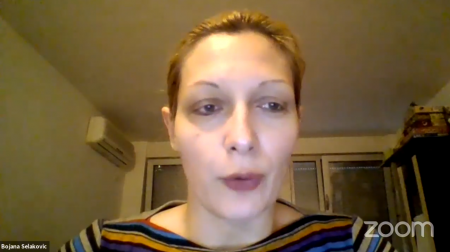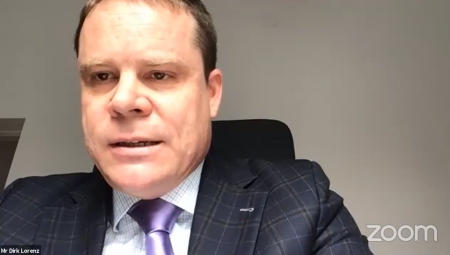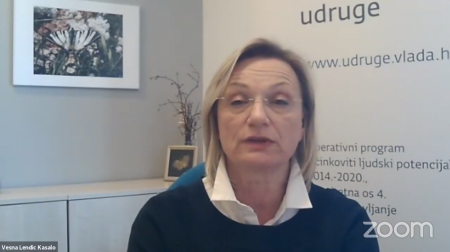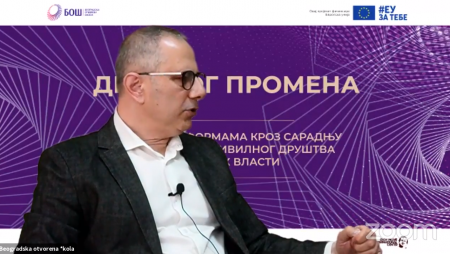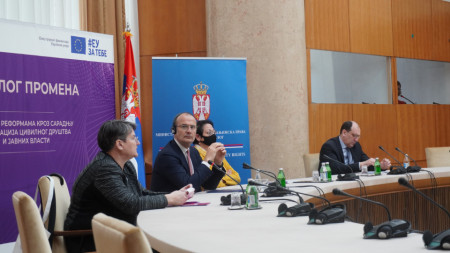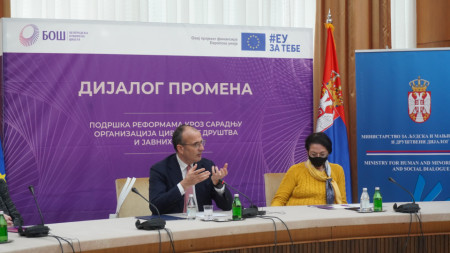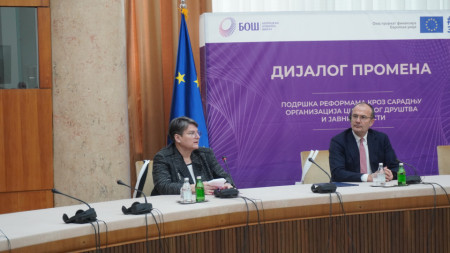In order to improve the lives of all citizens, the state must include citizens' associations in all decision-making processes. However, the insufficiently developed social dialogue, as well as the existing practices, show that this is not the case in Serbia.
Belgrade Open School in cooperation with the Ministry of Human and Minority Rights and Societal Dialogue, with the support of the EU Delegation to Serbia, on Thursday, March 25, 2021, organized a press conference and expert panel on the occasion of the three-year project "Dialogue of Change" aiming to support the establishment of dialogue between the civil and public sectors.
The speakers of the press conference were Gordana Comic, Minister of Human and Minority Rights and Societal Dialogue, Sem Fabrizi, Ambassador and Head of the European Union Delegation to Serbia, Ivanka Popovic, Rector of the University of Belgrade, and Milorad Bjeletic, Executive Director of BOS
"We must normalize that every topic in society should be discussed in this way, through dialogue between government representatives, civil society that wants to invest its expertise, representatives of the European Union and representatives of the University. We do not know in advance the outcome of the dialogue, but we know that if all of us who wish Serbia well unite, there is a possibility that we will meet in two years in this hall and say - we could and we succeeded," said Gordana Comic, Minister of Human and Minority Rights and Societal Dialogue
Sem Fabrizi, Head of the EU Delegation to Serbia, added that: “CSO has an important role in this dialogue as mediators who communicate with public administration representatives the most important needs of society and in this regard it is important to establish a systematic dialogue - both at the national and local level. As dialogue is realized in the European Union on a daily basis, so it is very important for Serbia that dialogue becomes new normality and a part of everyday debates. In order to find a compromise, we must gather citizens' associations, institutions, and representatives of the academic community to create requirements for the exchange of ideas. "
Ivanka Popović, the rector of the University of Belgrade, emphasized: "If we look at the state as a system whose task is to ensure the functionality of our community, I see this project as an opportunity to empower parts of society that are not part of the public authorities." "Universities are an underutilized resource that can provide more with its expert services than has been done so far."
Is there a dialogue between civil society and the public authorities?
After the press conference, an online panel discussion “Multi-sectoral Policy Dialogue in Serbia - How to Address the Elephant in the Room?” was held to discuss ways to better support the involvement of civil society in reform processes.
The panelists of the session were representatives of the EU Delegation to the Republic of Serbia, the Ministry of Human and Minority Rights and Societal Dialogue, the Office for Cooperation with NGOs of the Republic of Croatia, the National Coalition for Decentralization, Civic Initiatives, Forca Civil Action Forum, Uzice Center for Human Rights and Democracy and Belgrade open school.
Counselor/Head of Political Section at the EU Delegation to Serbia, Dirk Lorenz, pointed out: “It never been this much talk about dialogue, and it seems to us that it has never been less dialogue. In order to achieve the common interest, it is necessary to reach a compromise solution with a participatory approach of all stakeholders. "
"Dialogue is the basis of the work of the newly formed ministry, and its purpose is to point out the most important challenges that will then be successfully communicated to the authorities, in order to achieve the desired result," said Zarko Stepanovic, Assistant Minister in the Ministry of Human and Minority Rights and Societal Dialogue of the Republic of Serbia. Dialogue is a process aimed at the one hand at solving problems in the community through the exchange of different ideas and on the other hand, involving all sectors of society in order to use the full potential for development. For this reason, dialogue must be inclusive, transparent, and accountable. Although the dialogue is a two-way process, responsibility is not equal. Various reports show that the space for dialogue is narrowing and it is the unequivocal responsibility of the state to do something about it. There is a good normative basis, and now it is time to put it into practice - through the involvement of citizens and citizens' associations in all processes of policy and decision-making. Indirectly, this way of solving problems creates a sense of community, because although we do not have to agree, we must listen, respect, and treat each other equally.
The event was held within the project "Dialogue of Change: Nurturing Participative and Evidence-Based Policy Dialogue in Reform Processes in Serbia", supported by the EU Delegation to Serbia. The project will be implemented in partnership with the Ministry of Human and Minority Rights and Social Dialogue, the Republic Secretariat for Public Policies, the EU Public Policy Center of the University of Belgrade, the Olof Palme Center, and the Office for Cooperation with NGOs of the Government of the Republic of Croatia.
During the implementation of the project activities, through the dialogue of civil society and public authorities, it will be worked on solving specific problems in the community. The project also contributes to removing barriers to the involvement of citizens' associations in decision-making processes and their contribution to reform change in Serbia. In the next three years, 40 civil society organizations and 30 researchers will be financially supported, and through mentoring support, more than 100 representatives of citizens' associations and 60 representatives of local authorities will be empowered to participate in dialogue to solve specific problems and support reforms in the process of European integration.

